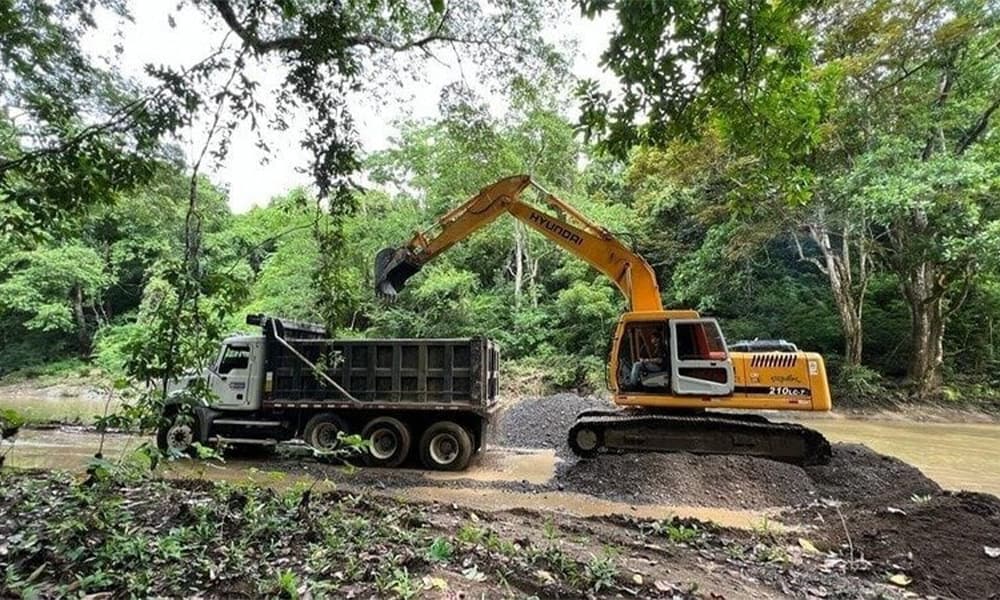The Community Alliance for Land Use Planning (ACOT) and several other organizations in Cóbano, Puntarenas, have filed an appeal with the Constitutional Chamber against the National Environmental Technical Secretariat (SETENA) to stop a mining project. According to these groups, the project threatens the ecosystem of the Ario River and nearby water sources used for human consumption.
The project, owned by Constructora Herrera S.A., obtained SETENA’s environmental viability, despite several claims presented in January that it lacked a solid technical foundation.
Community and environmental organizations allege that Ulises Álvarez, the general director of SETENA—who is already under investigation for other alleged irregularities in granting environmental permits and has been detained by the Attorney General’s Office—approved the project without conducting a thorough environmental impact assessment or consulting local inhabitants adequately.
This conflict arises amid growing concern about mining activities in the region. Throughout 2023, there was an increase in material extraction from the Ario River, many instances allegedly occurring without environmental control or technical supervision.
Local communities, supported by organizations such as Nicoya Peninsula Waterkeeper, have denounced these concessions as risks to biodiversity, including endangered species such as sea turtles. They also warn that the mining operations threaten local populations by potentially contaminating water sources that provide drinking water.
Since December 2023, more than 2,150 people have signed a petition demanding a halt to mining concessions in the Ario River. Nonetheless, according to the groups, SETENA granted environmental viability to Constructora Herrera S.A. primarily based on statements from the environmental manager hired by the company.
Environmentalists criticize the authorities’ alarming inactivity and have therefore turned to the Constitutional Court, requesting that it revoke SETENA’s resolution to protect the Arío River and defend the constitutional rights to water, life, and a healthy environment.
The Ario River, part of the Peninsular Biological Corridor and located near the Caleta-Arío Wildlife Refuge, is an area of great ecological importance. The extraction of materials from the river could cause irreversible damage to biodiversity. The Corridor connects protected areas on the Nicoya Peninsula and is crucial for conserving four endangered sea turtle species, as well as preserving mangroves, estuaries, and a rich diversity of terrestrial and marine life.






